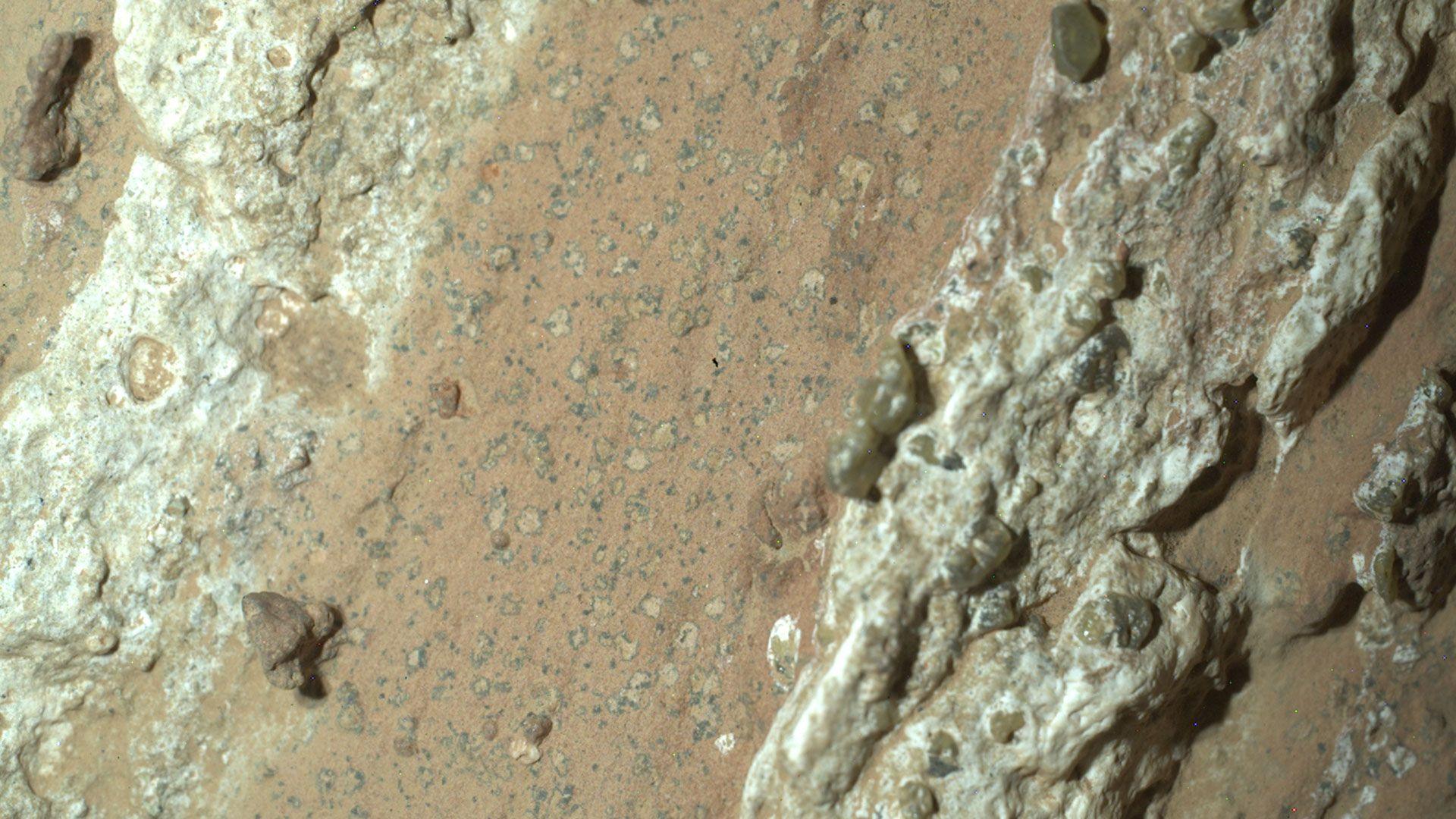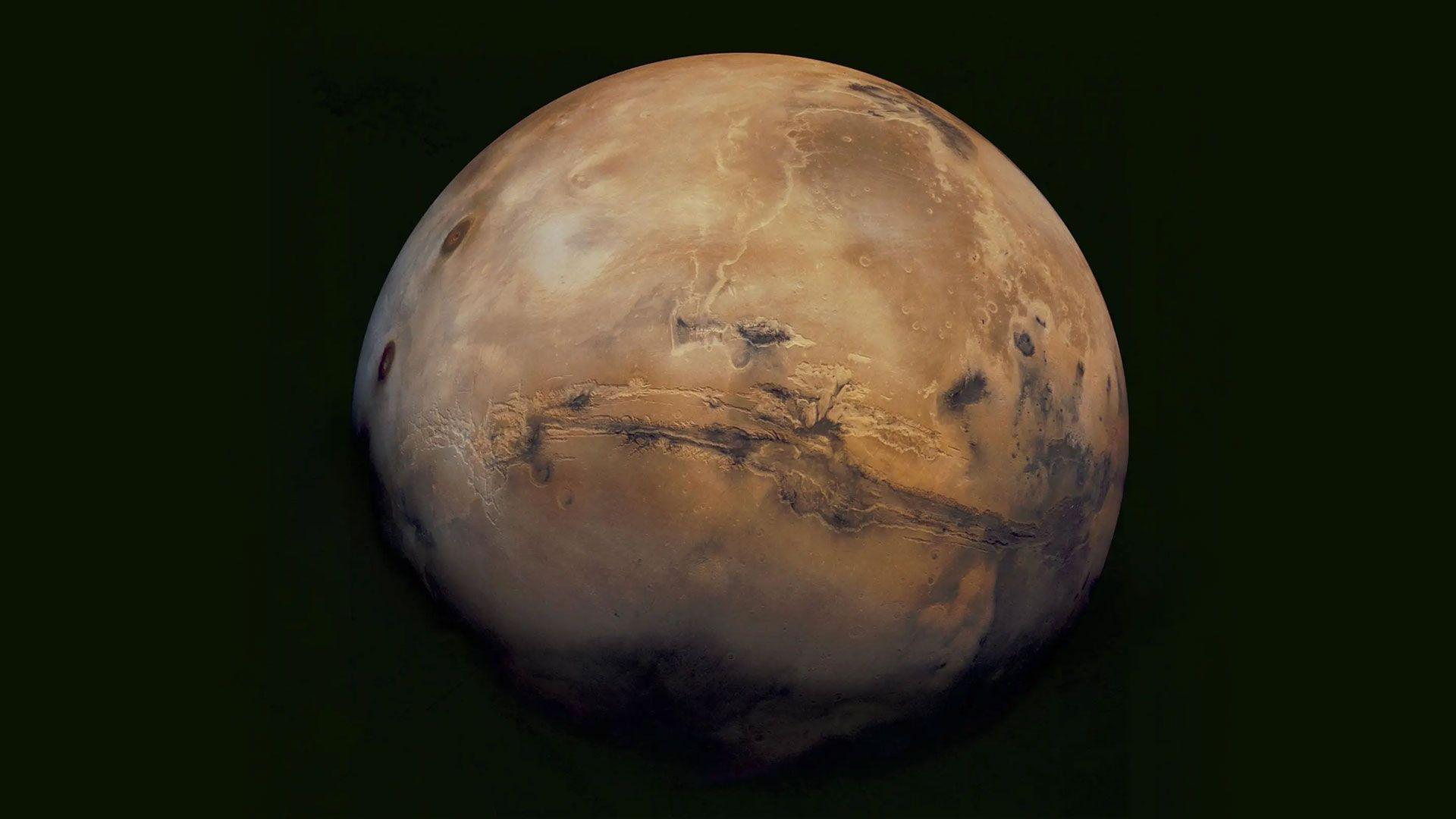Could these rocks show there was once life on Mars?

Perseverance found the rocks on Mars last year, and since then scientists have been studying them remotely from Earth
- Published
You might not think that rocks are super interesting, but some samples that have been found on planet Mars could lead to a huge discovery about alien life.
Nasa's Mars Perseverance rover has been searching the red planet for signs of life since landing there in 2021.
Recently it has been studying some unusual rocks that could show evidence of past Martian life.
Scientists think that these mudstones, dotted with mysterious markings, contain minerals produced by chemical reactions that are linked to natural life.
More out of this world stories
Nasa rover spots black-and-white striped 'zebra' rock on Mars
- Published25 September 2024
This Earth-like planet might have an atmosphere
- Published8 September
Mars meteorite sells for whopping $4.3m at auction
- Published17 July

This is the rock that could hold some amazing secrets
But scientists aren't talking about there being aliens on Mars now, but rather that the planet may have once had some sort of life in existence billions of years ago.
Mars is a cold and dusty planet, but scientists think that billions of years ago it had an atmosphere and water that could have supported life.
Perseverance found the rocks, that are around 3.5 billion years old, beside a dried-up riverbed.
The rock's patterns of markings are being called 'leopard spots' and 'poppy seeds' by researchers, these patterns could be evidence of ancient Martian microbes - tiny living things that can only be seen through a microscope.

Mars is the fourth planet from the Sun, and the seventh largest in our solar system
Professor Sanjeev Gupta says that this is a "big deal". She's a planetary scientist from Imperial College London, and is one of the authors of the new research.
"We're not saying that we found life, but we're saying that it really gives us something to chase."
Professor Sanjeev adds that "for true confidence, most scientists would want to see and examine these rocks (back) on Earth - this is one of our high priority samples to return."
